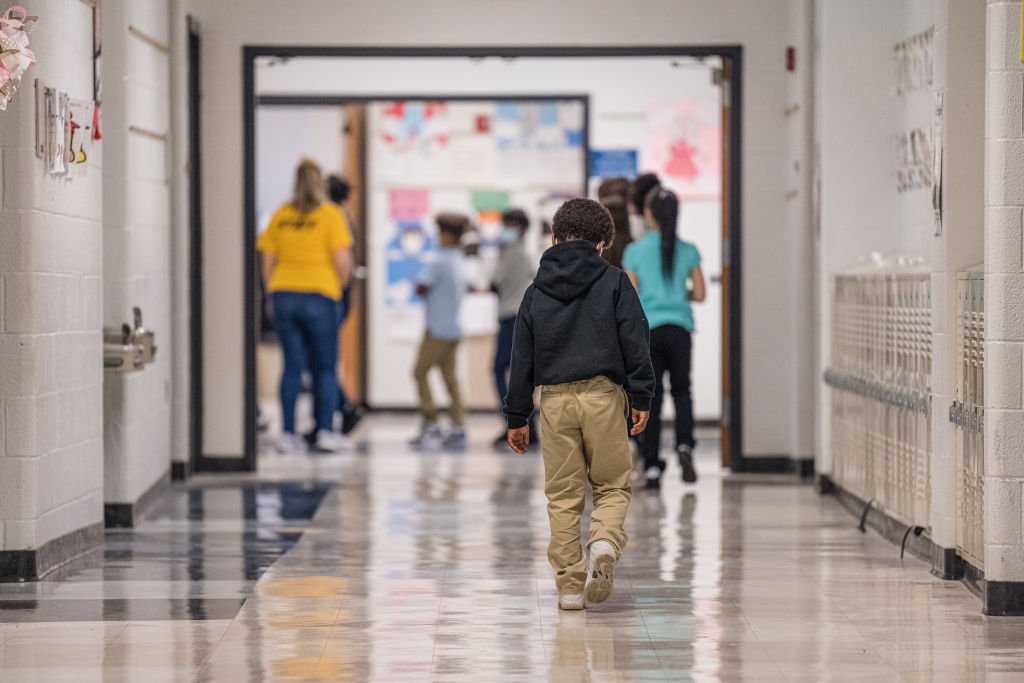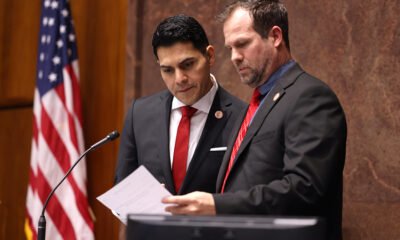Education
School Choice Ballot Battles: Three States Vote While Others Push Back

Supporters of school choice in Kentucky are pushing for a significant change as voters prepare to decide on state-supported payments for private education this fall. The initiative comes in response to a previous court ruling that deemed such funding unconstitutional. Proponents argue that allowing public funds to support private institutions would enable parents to have greater control over their children’s education.
Across the nation, school choice is gaining traction, with 33 states, Washington, D.C., and Puerto Rico already having established various programs. These include education savings accounts, voucher programs, and tax credits to assist with private schooling costs, according to EdChoice, a nonprofit advocacy group.
As Kentucky prepares for its electoral decision, controversy surrounds the proposed measures. In Arizona, the recent expansion of school vouchers has raised eyebrows, with reports of families using funds for unrelated purchases, such as dune buggies and luxury toys. Public school advocates, including teacher unions, generally oppose these initiatives, while many conservative lawmakers and religious groups back them.
The Kentucky ballot measures aim to alter the state constitution to allow tax credits and public funding for private and charter schools. Advocates argue this would provide crucial educational alternatives, especially for families dissatisfied with local public schools. Republican state Senator Damon Thayer emphasized that approval could lead to a revival of scholarship programs previously passed into law.
Conversely, opponents like Tom Shelton, a retired superintendent and member of the group Protect Our Schools KY, argue that public funds should not support private entities when public schools face underfunding. He highlighted concerns that rural communities could suffer disproportionately, as most private institutions are concentrated in urban centers like Louisville and Lexington. “Who’s going to lose most? The rural poor kids,” he stated emphatically.
In Nebraska, residents will vote on whether to partially repeal a recently enacted scholarship program for private education. The state’s Supreme Court confirmed the measure’s placement on the ballot, prompting divided opinions among lawmakers. Proponents see it as a necessary safeguard, while unions argue that public education already offers sufficient options through existing systems.
Meanwhile, Colorado voters will weigh in on a proposed constitutional amendment that would guarantee the right to school choice in various forms, including charter and private schools. Although the measure’s backers insist it aims to protect existing charter systems, critics question whether it could indirectly facilitate voucher programs.
States with existing school choice initiatives are currently facing backlash. Recently, South Carolina’s Supreme Court struck down a controversial voucher program, leaving many parents without support. In Arizona, concerns around misuse of funds have prompted investigations, leading to disputes over regulations governing educational spending.
As debates on school choice heighten, it remains to be seen how these measures will evolve and impact education systems across the country. In an era of polarized views, public opinion may steer the future of these initiatives.


















